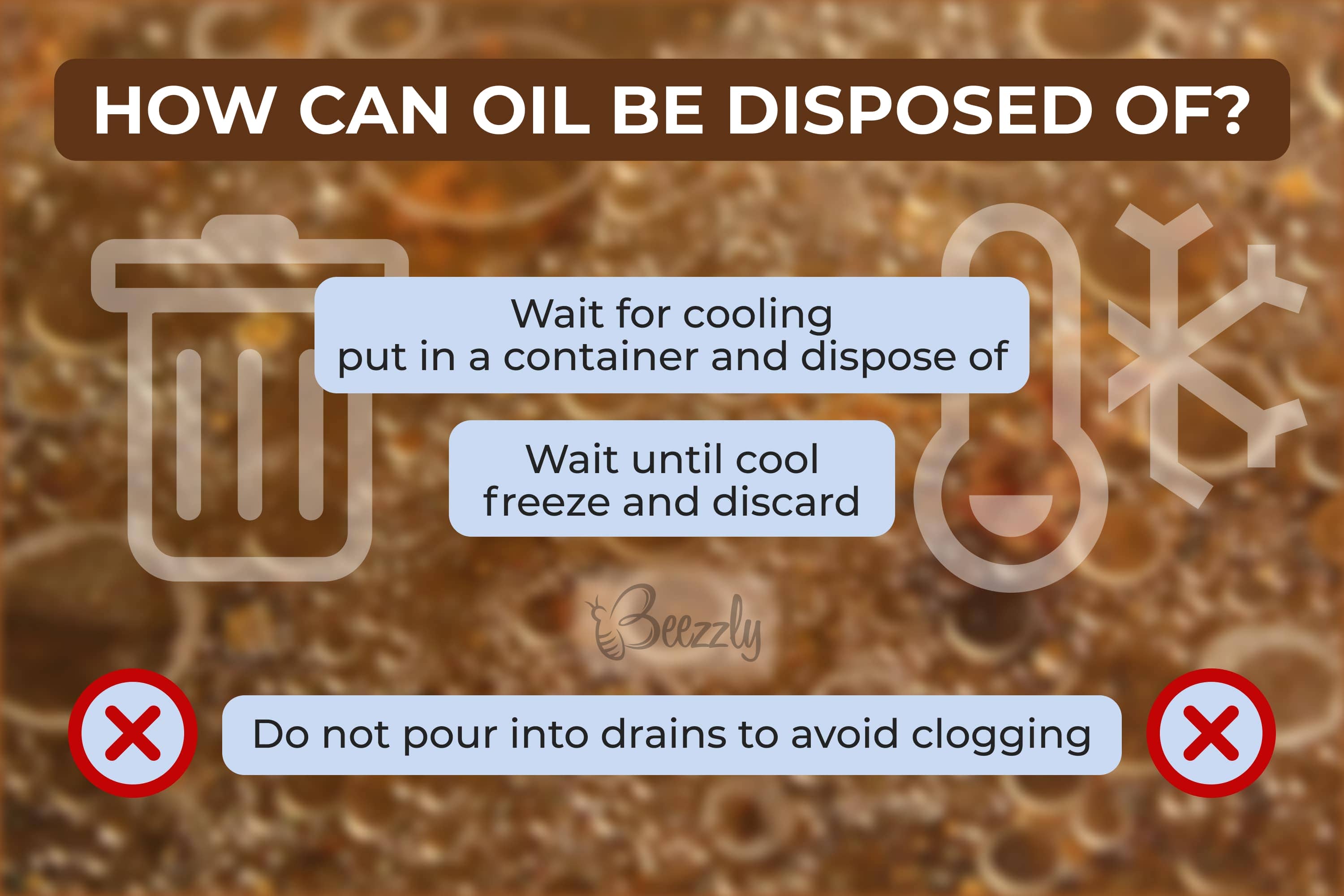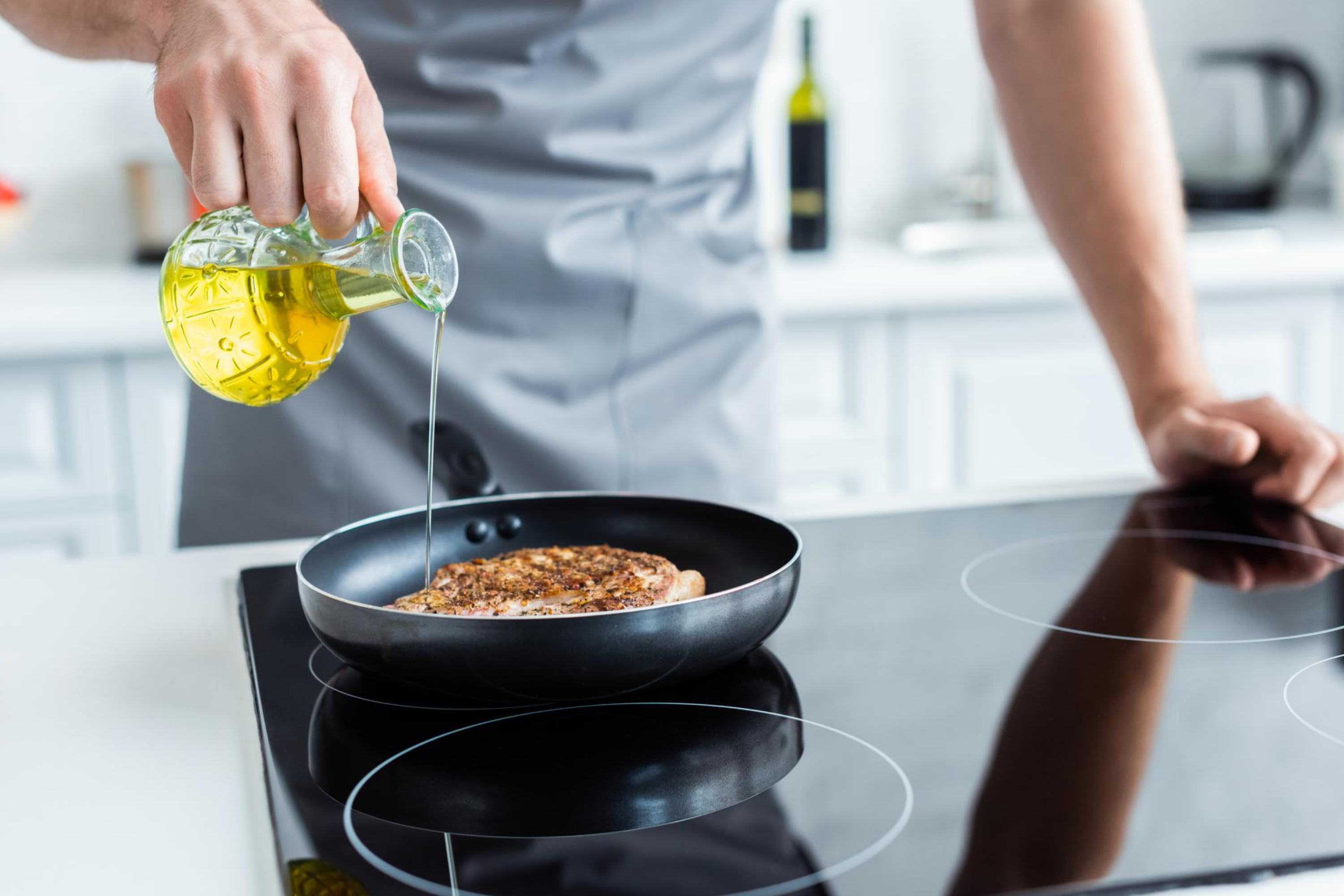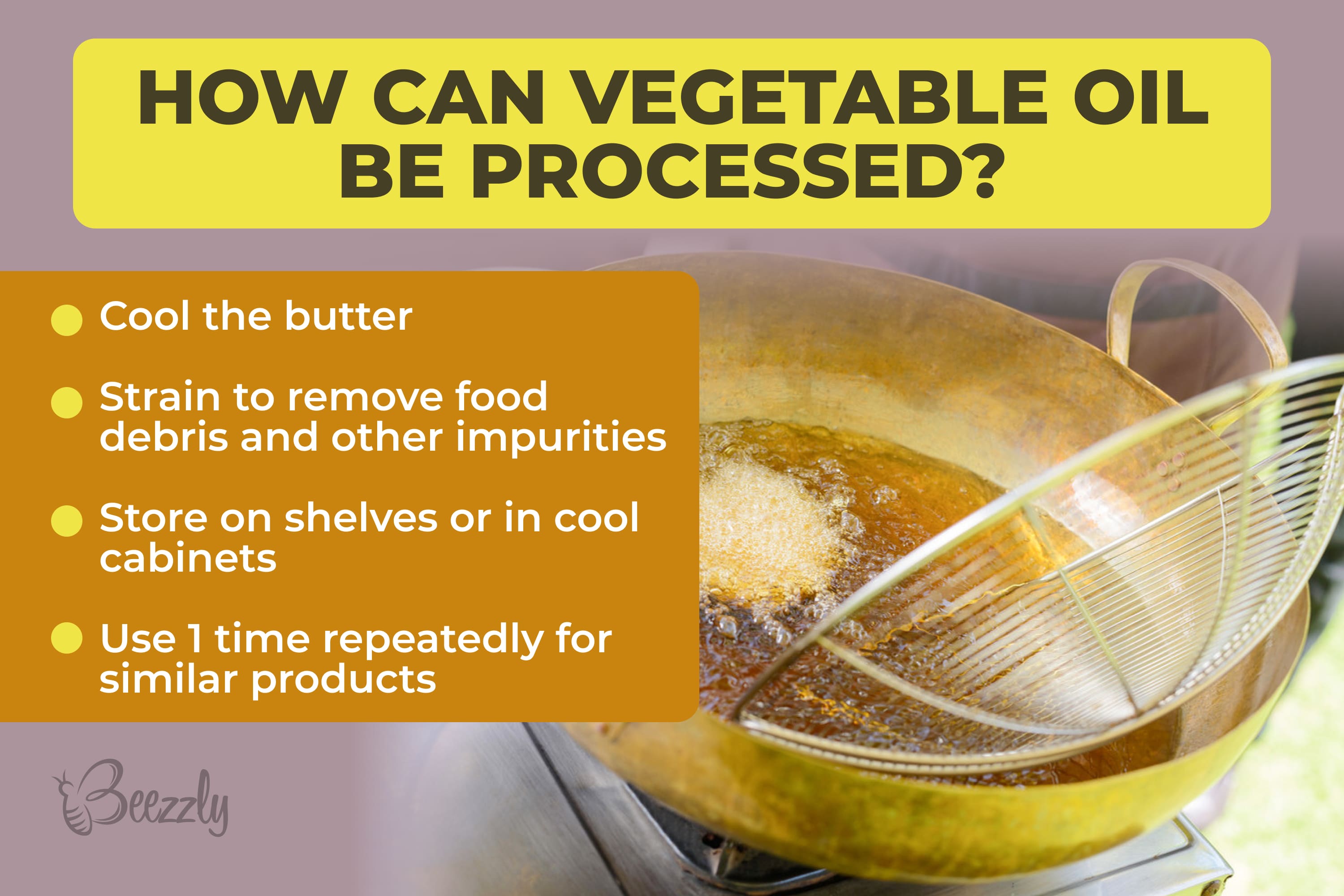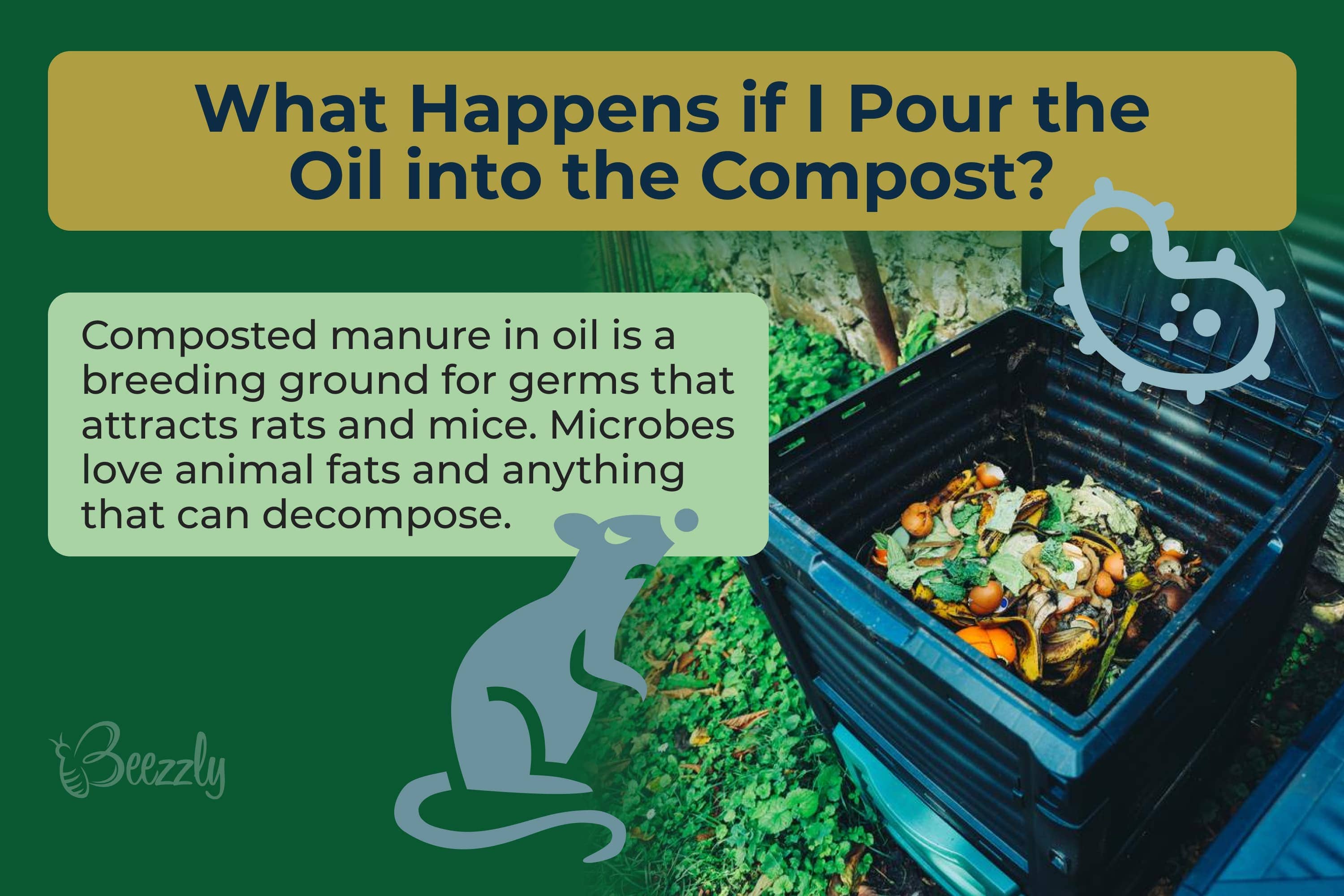Fried foods are some of the most preferred meals because of their rich flavors. However, there’s just a little problem. The use of cooking oil can be messy.
Not just that, the question of how to dispose of used oil and fats is another daunting task.
Yes! You still have to decide what goes into the bin before you dispose of trash either way.
Cooking oil spillage in the kitchen sinks leads to blockages—from sink pipes to the drainage system and clogging of the sewer system.
Typically, oils and fats do not mix up with water. Plus, the two elements move slower. This attribute retains them in the pipes, more so during cold weather, where they solidify on the pipe linings causing blockages.
Other than spillages on the floor that can cause falls, poorly discarded oils may also end up in local water sources—a significant environmental problem.
Now, are you wondering what to do with animal fats and grease waste? We have compiled ways of disposing of oil, fats and grease in a safe and environment-friendly manner.
What Is the Most Appropriate Way of Discarding Cooking Oil and Grease?
In modern families, grease and oil are often retained and later discarded with other household wastes. To do this, you have to follow the following steps:
- Completely cool down the used cooked oil before transferring it to the container in which it will be disposed of
- It would be best if you closed the can properly and tightly to avoid leaks
- Put the disposable container in the garbage waiting for the disposal of the trash
The best containers to use for this disposal include plastic water bottles, unused laundry bottles, milk cartons and empty disposable bottles. Pour only cold oils into these containers; otherwise, they may burn and pop out, dirtying the area.
It also helps when you transfer oil cautiously to avoid leakages. In case of spillage, wipe the surface using paper towels or washable towels before cleaning the surface using soap and water. Be sure to clean utensils with oil the same way.

Another helpful tip is solidifying the oils by freezing the residue before trashing them. This strategy is ideal when you want to avoid the liquid state that might leak. Other homeowners opt to mix the oils with solid absorbent waste like flour and sawdust.
Tip: Avoid using plastic bags, however tough they may seem. These materials may potentially cause leakages.

How Can You Recycle Cooking Oil?
This is very easy! All you have to do is completely cool the oils before straining the cooking oil into airtight glass containers. Straining cleans the oil by removing any food remains and other impurities.
You can then keep the oil in the refrigerator, shelves or cool cupboards for subsequent use. That said, never mix or store oils or fat used for frying differently flavoured foods in the same container.
Another helpful tip for recycling is to take note of the expiry date.
Note: you can only recycle oil used for frying different foods for only a number of times. For instance, the oil used for frying potatoes can be reused more times than that used for bacon or sea foods.

When Can You Discard Cooking Oil?
Cooking oil can also go bad. You can tell this through your natural senses of sight, smell and touch.
Overused oil changes in texture/color and can tend to have an unpleasant odor. When the oil turns to color black or green, its disposal is long overdue. Otherwise, it’s unsafe to use the oil if it smells awful. What’s more, once the oil starts feeling gummy and sticky upon touch, now the oil is only safe in the trash can.
What Will Happen if I Put Cooking Oil Into My Compost?
Grease or oil has no business in compost manure. Nevertheless, if it finds its way there, the consequences are minimal. Do you want mice and rats on your farm?
Obviously, the answer is no! For that matter, keep oil away from your compost. Microbes love animal fats and anything that can decompose. For this reason, avoid adding oil used in cooking animal products like bacon to compost.
Oil can also form a thick layer over the soil, creating a barrier for air and water circulation. This issue will, in turn, prevent decomposition leading to pungent smells.
On the other hand, plant-based natural oils have minimal adverse effects on your farm. In fact, such waste products might prove beneficial in your farm compost (but only in small volumes).

What if I Drain Oils on the Ground Within My Compound?
Through its regulatory body (the US Environmental Protection Agency), the US government provides standardized ways of disposing of vegetable oils and animal fat.
These are similar to those applied in managing petroleum products. For the record, the state bans any form of intentional spillage.
Some people may contend that since their oil is in small amounts, they can drain the fats along their fence, walls, or ground within their compounds.
This action is equally banned. Such oils can drain into rivers, adversely impacting aquatic life.
Make Biodiesel Fuel From Cooking Oil?
That’s right; you can divert used oil from the landfill. Biodiesel is a valuable energy source derived from soybean oil and animal fats, among other recycled cooking oils.
Making biodiesel starts with used cooking oil—and the recycling process contributes significantly to producing clean biodiesel.
So, reach out to your local garbage collection company and find out if they collect cooking oil to make biodiesel.
What if the System Is Clogged Already?
Are you having issues with dirty water in your blocked sink? Drains tend to slow down due to the accumulation of oil over time. Now, here’s what you need to do to fix the concern.
- First, put on your gloves and get working. Use a plunger to push down the water, and you’ll have a dry sink.
- Next, mix baking powder with water and pour it down the sink.
- Then, flush it down with a cup of vinegar. You will pick up a fizzing sound. These two elements are outstanding at loosening the oil from the pipes. Finally, pour hot water into the sink to clean off the oil, grease, and fat.
Are you looking forward to preparing deep-fried crispy chicken?
Cooking oil spillages are inevitable when frying such foods. Even when washing pans, residue oil may end up in your sink. This problem calls for regular clean-up to avoid buildup.
That’s why it’s best to clean your drain at least once a month. Such a move will help you ward off the emergency plumbing service bills.
